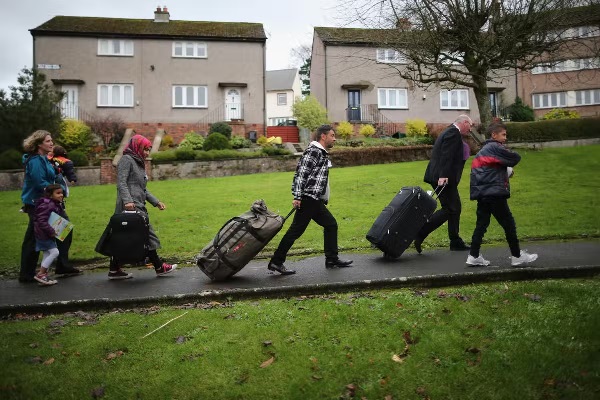Settlement Services International
The Federal Government’s review of the Workforce Australia scheme must address a gaping hole that has left migrant and refugee communities without adequate support, according to leading non-profit Settlement Services International (SSI).
Minister for Employment and Workplace Relations Tony Burke MP this week announced a review of the implementation of the new employment service, Workforce Australia, which has been the subject of widespread public criticism since it was locked in by the former government just days before the election.
SSI CEO Violet Roumeliotis said she welcomed this as a step towards addressing gaps in the new scheme that were exacerbating inequalities facing culturally and linguistically diverse (CALD) jobseekers.
“The Workforce Australia introduced ‘CALD’ or ‘refugee’ licenses for specialist providers, but then failed to issue these in areas such as south west Sydney, which has the highest caseload of CALD and refugee jobseekers in Australia,” she said.
“This was disappointing given that, in overhauling the scheme, the former government indicated Workforce Australia would address the unique challenges and barriers that prevent migrant and refugee jobseekers from gaining employment in Australia.
“Lower employment rates for people from non-English speaking backgrounds is contributing to poverty rates, which are almost double those of people born in Australia.”
Table 1: A breakdown of Workforce Australia specialist licenses in south west Sydney vs Melbourne
| Area | CALD
caseload |
Licenses granted | Refugee caseload | Percentage of licenses |
| Sydney South-West | 12,266 | None | 3,641 | None |
| Western Melbourne | 8,807 | 1 | 2,471 | 1 |
| North-Eastern Melbourne | 4,315 | 1 | 1,244 | 1 |
Ms Roumeliotis said she was concerned that the house select committee reviewing the scheme would not report back to parliament until September 2023.
“In the meantime, jobseekers from migrant and refugee backgrounds are falling through the gaps. We need action sooner,” she said.
“The areas of concern include regions of Sydney that currently represent the most culturally and linguistically diverse areas of the Australian population and are the epicentres of Australian migration.
“Failure to address this will leave migrant and refugee individuals vulnerable, as generalist employment services providers do not have a strong history of meeting the needs of these communities. At a time of increasingly high costs of living, we can’t risk more community members falling into poverty through a lack of support in securing employment.”
Ms Roumeliotis said some of the unique barriers facing migrant and refugee jobseekers included limited English language proficiency, inadequate Australian work experience, limited social networks and issues in having their skills and qualifications recognised.
In order to adequately address the needs of these communities, employment services providers should have the cultural and linguistic skills to work with people from CALD backgrounds, she said.
“Cultural responsiveness can also be improved through the active use of translating and interpreting services,” she said.
“Ultimately though, the government needs to engage more specialist providers to deliver employment services in areas with high levels of migrant and refugee jobseekers.”


You must be logged in to post a comment Login